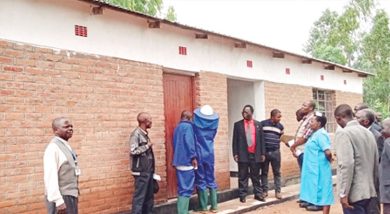Cost of violence
Malawi’s economy has lost over $534 million (about K401 billion) of power purchasing parity (PPP) due to a nine-month long political instability that ensued after the disputed May 21 2019 Tripartite Elections.
This is revealed in the 2020 Global Peace Index (GPI) report on global peacefulness published by the British Institute for Economics and Peace (IEP), an independent, non-partisan and non-profit think-tank and world’s leading measure of global peacefulness.

This amount represents two percent of the country’s gross domestic product (GDP) currently estimated at around $7 billion.
The K401 billion is equal to combined 2020/21 annual budgets of some four key ministries of education (K172 billion), agriculture (K101 billion), transport (K88 billion) and energy (K40 billion) former minister of finance Joseph Mwanamvekha presented in June this year before it was withdrawn by the Tonse Alliance administration.
The cost is also six times more than the K62 billion former president Peter Mutharika—in his last State of the Nation Address (Sona) on June 5 this year—announced the country lost during the period due to disrupted businesses, vandalism and burning of public and private property as well as scaring away of tourists and investors.
During the same period, the economic cost of violence as a percentage of GDP for Malawi’s neighbours—Zambia, Zimbabwe and Tanzania were $2.4 million of PPP or four percent of their GDP, $2.4 billion or 13 percent of their GDP and $6.6 million of PPP, representing three percent of GDP, respectively, according to the GPI.
PPP is a theory of measurement of prices used by macroeconomic analysts in different countries that use the prices of specific goods to compare the absolute purchasing power.
Economic and development specialist Betchani Tcheleni from The Polytechnic, a constituent college of the University of Malawi (Unima), said the cost makes a common person the ultimate sufferer.
The economist observed the country’s economy was under siege due to complete or partial closure of businesses and failure by new investors to commit their resources to the economy, among others, thus bringing about negative economic costs.
“In this state we need the planners to start uniting Malawians and preach unity and hard work. We need to have all Malawians at work without taking sides.
“We just have to understand there is a new leadership that must focus on stopping pilferage. Corruption and abuse of office must be rooted out. In so doing, we can regain the confidence we need to get this country back to normal,” he said.
But despite the political instability during the period, Malawi is the second least economically impacted country—at two percent of GDP—and at par with Ghana, Qatar and Indonesia.
Syria and South Sudan are the most impacted globally at 60 percent and 57 percent of GDP, respectively, according to the GPI report.
Minister of Finance Felix Mlusu said he could not comment much on the cost as he was yet to read the report.
“But these are some of the things we are working on in our budget as you know we just passed a provisional budget.
“As we are working on our plans, we obviously have to come up with responses as to how we will address any shortfalls and indeed going forward,” said Mlusu on Thursday.
On levels of peacefulness, the GPI report shows Malawi has cumulatively slipped by 26 steps in both global and regional rankings.
The country has dropped from position 40 in 2019 to 59 this year in the world rankings and has also drifted back to position 10 from three in sub-Saharan Africa.
Master Dicks Mfune, a peace and security studies expert, from Chancellor College—another Unima constituent college in an interview urged political leaders to cultivate a culture of “positive peace” to recover the economy and sustain the country’s development.
Mfune, who is also a global peace ambassador, noted Malawi was currently polarised along two parallel lines of either belonging to the Tonse Alliance or DPP and UDF alliance which he argued have both caused “direct, structured and cultural violence in the country.”
“Close the chapter of escalation of violence… We need to open a new path of cultivating a culture of positive peace with an aim of achieving sustainable development,” he said.
Another security analyst Alex Chisiano observed the deterioration of the country’s peace in the country as per the GPI report was not a surprise because of “too many sacred cows that frustrated justice.”
He said: “There was selective justice and no rule of law. The system had weakened enforcement institutions and created untouchables in form of cadets. If universal justice, respect of the law and punishment of offenders and recovery of stolen money can take place, sanity will return and there will be peace. If the law is not allowed to take its course, the situation will only worsen.”
But Chancellor College’s political scientist Mustapha Hussein while advocating for peace education and mechanisms to manage and resolve conflicts peacefully, said the deterioration could probably be due to the political risk posed by developments in the previous regimes.
“However, the sure way of ensuring lasting peace is by providing meaningful development politically, social-culturally, economically and technologically. Malawi should provide the necessary infrastructure development, efficient and effective public service delivery to improve Malawians’ welfare,” said Hussein.
Overall, the report reveals the average level of global peacefulness has deteriorated for the ninth time in 12 years with 81 countries improving and 80 deteriorating.




